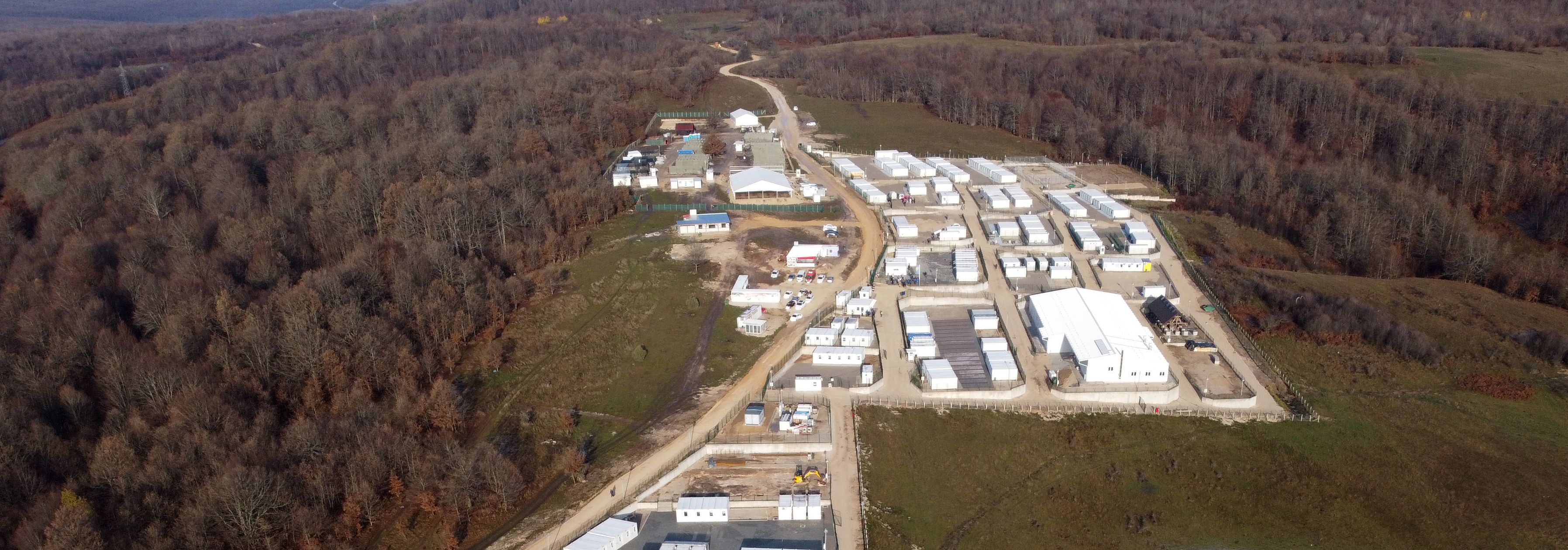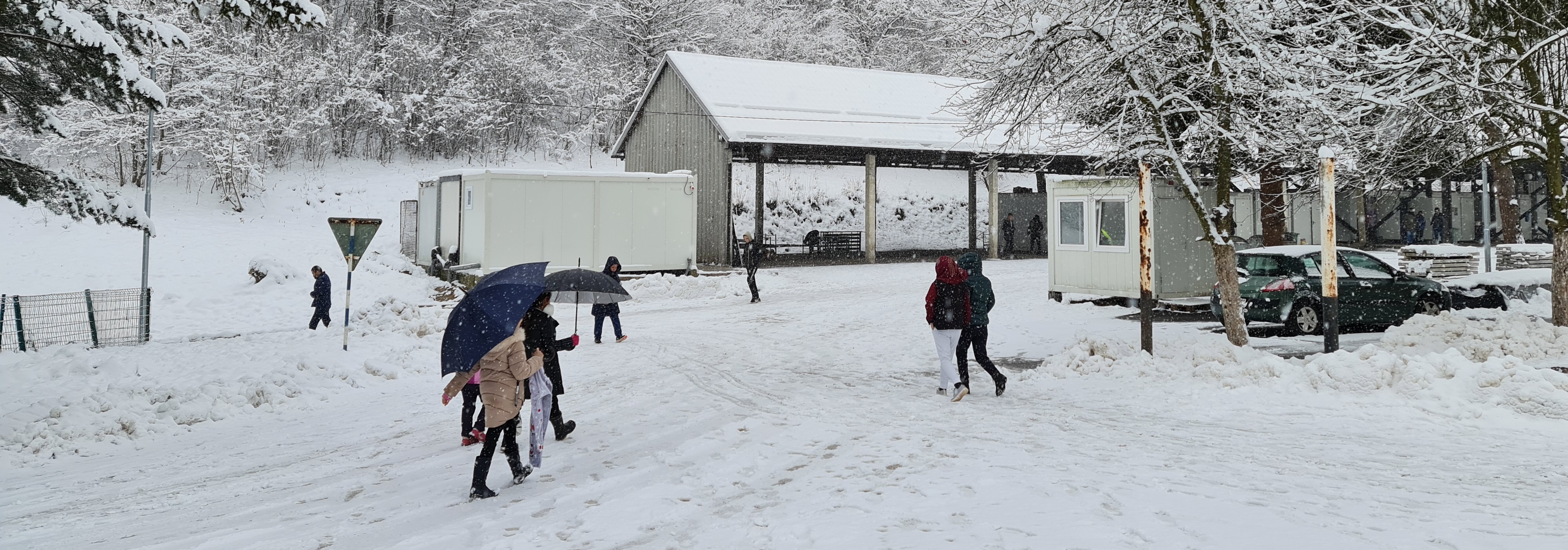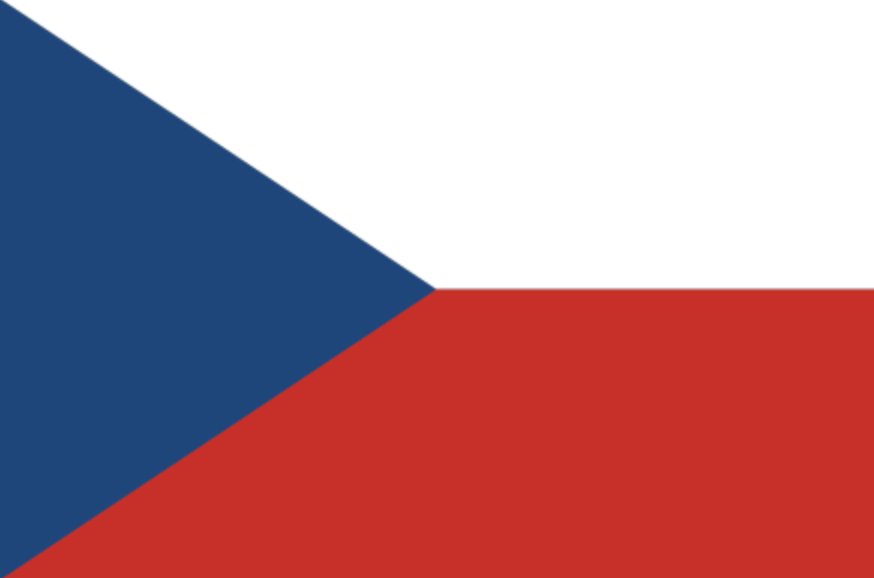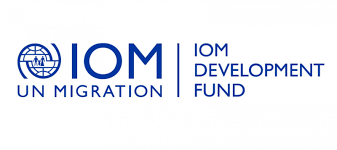IOM Vision
IOM’s vision, in line with the humanitarian-development-peace nexus, is to work through a whole-of-society and a whole-of-government approach to contribute to a safe, prosperous, and resilient Bosnia and Herzegovina (BiH) by addressing the humanitarian needs of transiting migrants while supporting longer-term solutions, peace and social cohesion. IOM will continue to support the Government of BiH to effectively manage functioning migrant reception, protection, and other assistance to meet the challenges of an increasing number of migrants transiting the country and contribute to ensuring their dignity, safety, and security. Furthermore, IOM will work with communities and the government to build social cohesion, preparedness for disasters, and resilience to drivers of instability in order to address negative drivers of emigration and prevent displacement.
Objective
Saving lives and protecting people on the move
IOM will continue working with the UN, civil society, and other partners to provide support and assistance to migrants, asylum seekers and refugees transiting in BiH. In 2024, IOM plans to advance further in the transition to a fully state-led migration response including the reception of migrants transiting the country. IOM will increasingly strive to take a technical assistance role in the response. Host communities where migrants are present will continue to be targeted to ensure cohesiveness, dialogue and cooperation between residents and people on the move.
IOM's Displacement Tracking Matrix (DTM) teams will collect data in reception centres and outside locations where migrants gather or live, to provide the humanitarian community and interested public with information on trends and identified gaps to ensure an effective, coherent and well-evidenced migrant crisis response.
In 2024, IOM will aim to advance the hand-over camp management to the state authorities while increasingly providing technical assistance and expertise. IOM will ensure that AAP mechanisms are in place and fully operational by the time of this transition, ensuring migrants have a voice in camp management. IOM will:
- Provide technical assistance and continued capacity-building of state partners in CCCM best practices, AAP, community engagement, and durable solutions options for beneficiaries.
- Support the implementation of long-term strategies for sustainable reception facilities tailored to the profiles and needs of the persons accommodated, and integrated with the local communities.
- Continue to support state partners in improving registration capacities, including equipment and software, for protection-sensitive registration and referrals to services;
- Support the state in conducting day-to-day CCCM activities in the reception centres.
|
In 2024, IOM will aim to conclude the transition to the full government management of shelters, with IOM technical support. With this aim, IOM will continue building the capacity of the SFA for more independent shelter provision and daily operations of TRCs. IOM will also continue to provide protection and other essential services. While the state will lead the shelter and basic service provision, IOM will be contributing with technical support and expertise in providing shelter and basic services to migrants transiting the country, and the running costs of the centres, cleaning and maintenance staff, non-food items and food provision. Specifically, IOM will:
|
|
Following the transition, IOM will fund the provision of medical support to migrants through the public health system, while maintaining the minimum necessary health facilities in the reception facilities. IOM will ensure the availability of emergency services in the reception centres, first aid and basic health provision, and transportation services to healthcare centres. With this aim, IOM will:
|
|
IOM will continue enhancing cooperation with, and strengthening the capacity of, key state actors in identifying vulnerabilities. Furthermore, IOM will continue to expand its provision of protection services, in coordination with local institutions and partners. IOM will:
|
|
IOM will strive to improve the mental health and psychosocial support (MHPSS) services provided inside and outside of TRCs, increasing its availability to migrants, especially those in vulnerable categories. IOM will:
|
The DTM aims to improve the access of national institutions, civil society, and humanitarian responders to accurate, up-to-date data and knowledge on migrants arriving to, and present in, BiH. IOM will conduct individual surveys of migrants to collect information on demographics, including countries of origin as well as transit areas, detailed information on specific vulnerabilities, socioeconomic circumstances, routes, and further movement intentions, among other relevant topics. Following data analysis, reports will be disseminated to stakeholders and used as guidance for knowledge-based policy, technical, and capacity building. IOM’s DTM will publish some sets of de-personalized data on its web platform for free use by third parties, when in line with IOM data policies.
In 2024, IOM will:
- Continue to provide regular and systematic data on migrants inside and outside of formal reception centres in BiH to a wide range of stakeholders.
- Issue analytical reports on statistical trends and projections of migrant arrivals and demographic trends, among others.
- Maintain publicly available databases and dashboards to present the data to the wider public.
- Support state migration data management.
- Continue to develop and operate the early information system on likely changes in the number of arrivals to be expected. This will be done by integrating data collected along the route, from Türkiye and Western Balkans, into the BiH early information system to enable a planned and orderly response and resource mobilization and pre-positioning to be expected

Objective
Driving solutions to displacement
IOM will support local communities to ensure that mechanisms dedicated to strengthening communities continue to function and to continuously engage young leaders dedicated to community resilience. IOM will ensure the continuity of the targeted communities through targeted yet flexible support. New communities will receive direct support, including youth, families, marginalized community members, religious, cultural, and education leaders and individuals facing socioeconomic stressors. IOM will continue to support social cohesion activities between and among host communities and migrants as well as initiatives that reduce xenophobia and divisive narratives.
By 2024, IOM aims to build upon tools and plans developed with the state and civil protection institutions to upscale the readiness of local communities for disasters. IOM will continue coordinating with the State, entity, district and local actors to increase their readiness for disasters, particularly in the context of climate change. IOM will maintain its whole-of-society approach and continue to ensure the participation of local community leaders, volunteers and youth, both men and women, to ensure a grassroots approach to disaster risk reduction.
|
IOM will assist communities of return, and the Government of BiH to be prepared for the reintegration of returnees from conflict zones in line with international standards. Given the complexities and political sensitivity related to the return and reintegration of returnees from conflict zones, a flexible and process-oriented approach, tailored to the specific needs, and in close cooperation with the responsible government authorities, is required. The timing, as well as the expected numbers of returnees, will also affect the intensity and scale of project interventions across the region. IOM will contribute to enhanced social cohesion in communities hosting migrants, and enable a response to the migration emergency that benefits people on the move and BiH citizens alike. IOM will:
Additionally, IOM will continue supporting the implementation of the Transition Plan for the increasing role of the state in the migration response. IOM will support the implementation of solutions that give migrants access to services that provide them with tools and capacities to integrate into the BiH or EU societies, in line with the opportunities that exist for such regular pathways, such as for asylum seekers or victims of trafficking. Based on the identified regular pathways and protection rights, IOM will build the capacities of partners and stakeholders to expand the access of migrants to services and support. IOM will:
|
|
Currently, health care is mainly provided by BiH medical institutions, with funding passing through partner organizations. IOM and partners aim to increase state ownership in the migration response, and therefore to make the response more sustainable. The new system will be based on national health insurance for migrants transiting BiH, funding primary healthcare practitioners and health facilities. They will carry the main responsibility for health service provision in TRCs and will make referrals to secondary healthcare for a higher level of clinical care. IOM medical teams will act as a liaison point between camp administration, healthcare practitioners engaged in TRCs, and IOM management to ensure that health provision is fully integrated into the overall management of TRCs. The guiding principle in this area will be to align the health service provision system for migrants to the country's standards and norms and secure greater ownership of the model by the health authorities. IOM will:
|
|
In 2024, IOM will aim to improve the sustainability of community-based mental health and psychosocial support services provided to vulnerable groups, by ensuring local ownership and encouraging institutional support to local civil society in communities that continue to struggle with war legacies and/or lack resilience to instability. IOM will seek to:
|
|
IOM will continue supporting stakeholders' efforts to increase community resilience to destabilizing phenomena, including extremism in all its forms and climate change as a medium-term threat to peace and stability. In 2024, the focus will be on increasing the sustainability and durability of existing mechanisms for resilience to conflict. However, IOM will continue working with youth to increase adaptiveness to climate change, bolster youth activism and leadership for enhanced civic and political engagement, promote inclusive narratives, and expand youth participation in decision-making processes. IOM will:
|
IOM will continue to strengthen the preparedness and response to disasters among local communities and key stakeholders by building on the progress achieved in the previous period. In this regard, IOM will use a people-centred approach to improve the safety, security, and well-being of people in hazard-prone areas, and advance the preparedness and risk reduction efforts of stakeholders in the context of addressing the health dimensions of disasters. This effort will be closely coordinated at all levels of government, including at the local level, and seek out the participation of local community leaders, both men and women, to successfully engage with local communities. Specifically, IOM will:
- Continue to deliver CCCM trainings in municipalities/cities, including MHPSS first aid trainings in emergency contexts and training of trainers, followed by cascade trainings in at-risk municipalities.
- Continue to donate essential equipment to increase preparedness and respond to immediate rescue and shelter needs in crises to relevant government civil protection actors.
- Continue to support the government in lessening or limiting the adverse impacts of hazards and related disasters through various disaster mitigation practices.
- Support trainings on the use of donated equipment.
- Build capacities of civil protection practitioners through disaster response CCCM simulation exercises.
- Support civic engagement and participatory DRR activities in target municipalities/cities.
- Continue strengthening the public health capacities to respond to the health dimensions of disasters.
Bosnia and Herzegovina
The map used here is for illustration purposes only. Names and boundaries do not imply official endorsement or acceptance by IOM.
Figures are as of 31 December 2023. For more details of IOM's operational capacity in country, please see the IOM Capacity section.














